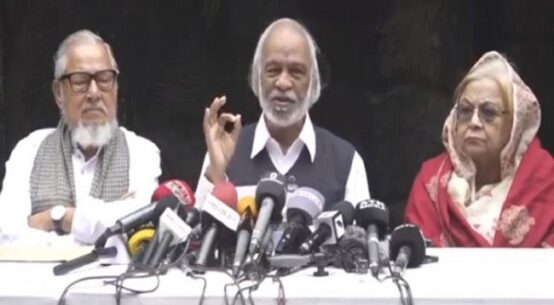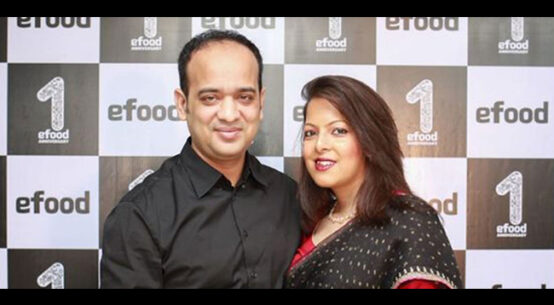
The future of vaccination program in Bangladesh looks bleak due to broken supplies of the injection vials as the lone supplier Serum Institute of India failed to ship the vaccines in time, officials said.
Bangladesh government signed an agreement with the Serum Institute of India for procuring some 30 million dosesAstraZeneca, but the organization could not ship the vials accordingly, officials said.
About 5.7 million people in Bangladesh have received the first shot while over 900,000 got the second jabs.
The stock of 10.2 million Covid-19 vaccine doses Bangladesh has received so far is set to run out in about one month, at the end of May, according to the Directorate General of Health Services (DGHS).
Bangladesh is supposed to receive 5 million doses of the Covid-19 vaccine each month under an agreement with the Serum Institute. However, no official shipments have arrived in the last two months as the Indian government is prioritizing their own domestic needs.
As a result, there has been some uncertainty about Bangladesh’s vaccination programs.
In such a situation, if the vaccines are not provided employing other means, the Coronavirus infection control will become impossible, experts fear.
In their opinion, the country’s immunization activities may face a crisis when supplies depend solely on a lone source.
Currently, many other vaccines are not being approved by Bangladesh government since they are not endorsed by the World Health Organization. However, the Russian vaccine Sputnik-V is being used in many countries without the approval of the World Health Organization. Even neighboring India has approved the vaccine. Meanwhile, the Chinese ticker has been given ‘Emergency Authorization’. The Trump administration even approved the vaccine for the first time in the 50-year history of the United States considering the devastation caused by the Coronavirus.
In case of such a pandemic, a decision has to be taken considering the state of emergency.
Meanwhile, vaccines produced by China and Russia are awaiting government approval. Although the two countries have shown their interest in administering the vaccines, the response of the Bangladesh government has not been that affirmative.
The officials of the health services division admitted that it is a big challenge for them to run the first and second doses, simultaneously.
“We are now worried about whether the second dose can be given as planned. Because we don’t have enough vaccines in the store,” a health ministry official said.
He said there developed some uncertainty about the ongoing immunization program as the government has not yet been able to secure the next consignment of AstraZeneca vaccine from the Serum Institute of India.
Some four organizations have applied for experimental application of Coronavirus shots in Bangladesh, the official added.
One of them is a domestic company, the other three are foreign originated. An organization has applied to start experimental application from the first phase. The other three institutions will implement the third phase,under an experiment, in the country.
The applications of two foreign companies were accepted by BMRC (Bangladesh Medical Research Council).
According to health services sources, the Russian-made Sputnik-V vaccine has proved to be the most effective in various tests. This injection has been used more or less in most countries of the world. A consortium is working to bring this vaccine to the country. They have already made an application to the Department of Drug Administration.
According to a source, the Institute of Medical Biology of Chinese Academy of Medical Sciences (IMBCAMS) wants to conduct the third phase trial of Coronavirus vaccine in Bangladesh. The Chinese state-owned company was established in 1958 in collaboration with the former Soviet Union. Oral poliomyelitis vaccine (OPV) was introduced in 1980 and Hepatitis A vaccine in 1992. The company has so far produced and marketed two billion doses of OPV and 52 billion doses of hepatitis. It is a large research institute nominated by the World Health Organization. When the coronavirus epidemic began in 2019, the company began working on an “inactivated vaccine” to prevent coronavirus. In the meantime, Sarskov-2 has developed a vaccine, which has been successfully tested in animals according to international guidelines and has successfully completed Phase-1 and Phase-2 in humans.
IMBCAMS applied to the Secretary of the Health service division on December 23 through a pharmaceutical company in the country to conduct a clinical trial of the vaccine. The Institute has already entered into an agreement with the International Center for Diarrhea Research (ICDDR, B) in managing some administering of the vaccines.
Trials of this vaccine are being conducted in different countries of the world and it does not have any severe side effects, some experts said.
Meanwhile, an Indian state-owned research institute called Bharat Biotech has developed a coronavirus vaccine. It is also an ‘inactivated vaccine’. It has already applied to BMRC to conduct a third phase trial of the vaccine. An agreement has been reached with ICDDR, BIR for conducting a clinical research in this institute.
In addition, on January 17, the Bangladeshi company Globe Biotech applied to the BMRC for permission to test their Coronavirus vaccine in humans.
In this regard, a member of the National Advisory Committee on COVID -19 and former Vice Chancellor of Bangabandhu Sheikh Mujib Medical University, Prof. Dr. Nazrul Islam said the matter is not complicated. The more trials of life-saving drugs like vaccinating takes place, the better would be the outcomes.
“If the results look good, we then may take the vaccine,” he said.
He, however, said it was not clear why the government is not approving the trial.
The director of the marketing department of IMBCAMS, Me In said, “We want to supply CORONAVIRUS vaccines as we are ready to vaccinate Bangladeshi people.”
He said their vaccine is already being tested in Brazil, Mexico and in Malaysia. The results of these trials are quite good. In addition, the vaccine has been administered to a large numbers of people in China.
He said China would provide the necessary vaccines if theBangladesh government agrees. Asked about the price of the vaccine, he said it would be offered at a competitive price.


